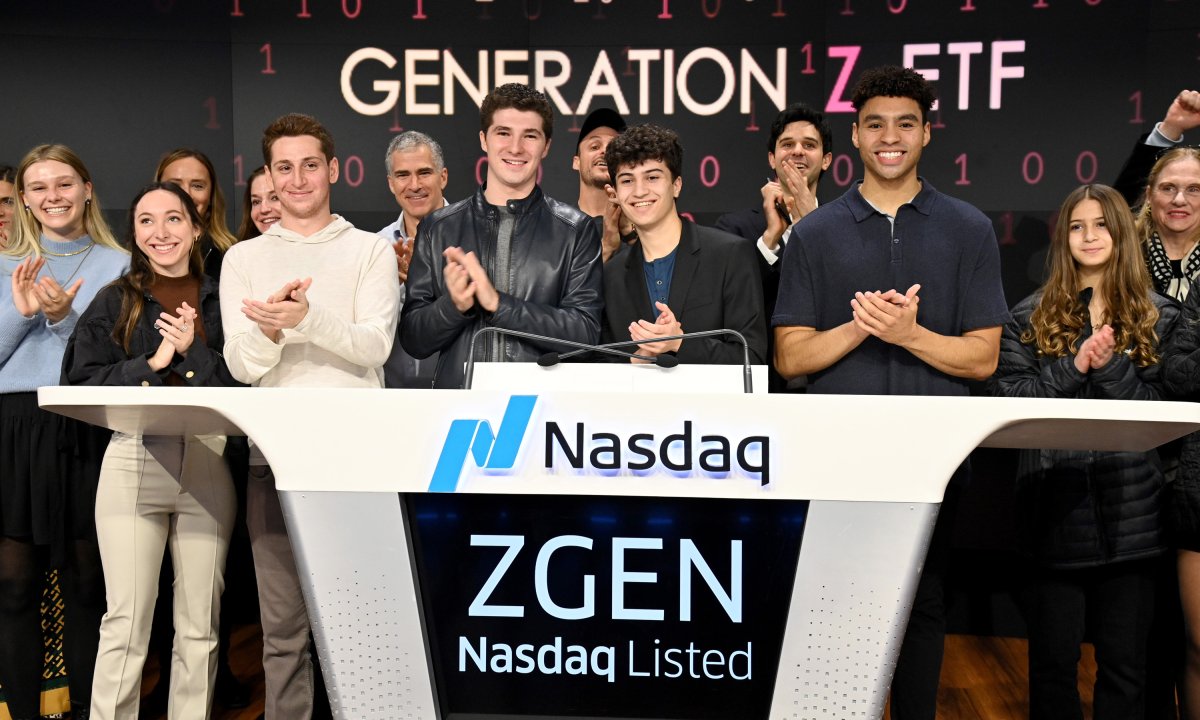Companies are struggling to operate as Gen Z enters the workforce at higher rates, and a growing majority of employers say the younger generation is toxic for their business.
That's the latest from a new Freedom Economy Index report conducted by PublicSquare and RedBalloon this month. In the survey, 68 percent of small business owners said Gen Zers were the "least reliable" of all their employees. And 71 percent said these younger workers were the most likely to have a workplace mental health issue.
One of the surveyed employers spoke of Gen Z's "absolute delusion, complete lack of common sense, and zero critical reasoning or basic analytical skills."
The criticism for Gen Z workers was in full force, as less than 4 percent said Gen Z was the generation that most aligns with their workplace culture, and 62 percent said Gen Z was the most likely to create division and toxicity in the workplace.

Another employer noted the generation's tendency for "expecting promotions for simply showing up every day."
The toxicity could even lead to company lawsuits, as 57 percent said Gen Z run the most risk of creating a workplace lawsuit.
Dan Space, an HR consultant who runs DanFromHR.com, said since the study reflects the feelings of small business owners, it could be skewed. These types of businesses often do not pay well or offer a high-quality company culture, he said, and Gen Z tends to look for those in any type of role or career they take on, he said.
"Gen Z is one of the most informed, confident and no BS generation because they saw what happened to the millennials before them," Space told Newsweek.
"Being told to go to college to get a great job, graduating with up to hundreds of thousands of dollars in debt, with zero tools to get a job, land somewhere and not be given the information on salaries, career development, moving towards compensation models that use mixed variations....So I find they are just far more comfortable with not putting up with this BS and being informed."
Gen Zers are not the most likely to have mental health issues, Space said, but he does believe they are more likely to be confident in discussing it and drawing boundaries.
In mid- to large-size companies, Space said Gen Z tends to outperform with technical skills and geography, politics and interrelated systems. But naturally there will be downsides for employers who want solely obedient workers.
"You can't intimidate them the way you could with millennials, nor do they have the Gen X apathy," Space said.
Space said that as a consultant, he has told companies that they should be thinking less about how to get their money and more about how to get Gen Z approval for long-term success.
The view of Gen Z as an entitled, toxic generation can also be due to misunderstandings about the time period in which they entered the workforce and what they experienced leading up to that, HR consultant Bryan Driscoll said.
This was a period of rapid technological advancement and shifting social values. It was also during the COVID-19 pandemic when companies transitioned to remote work and had a significant learning curve in training new employees.
"The portrayal of Gen Z as toxic for workplaces is not only unjust but also overlooks the broader context of the evolving workplace," Driscoll told Newsweek. "Their expectations for transparency, inclusivity and purpose in their work often get misconstrued as entitlement or unreliability."
Driscoll said characterizing Gen Z as the "least reliable" and most prone to mental health concerns reflects employers' own failure to meet the needs of their staff.
"Rather than labeling these workers as problematic, it's crucial to recognize they are navigating a work landscape fraught with challenges unseen by previous generations, including economic instability and a global pandemic that has reshaped notions of work-life balance and mental well-being," Driscoll said.
Driscoll added that Gen Z's approach to work does differ from that of older generations, but it's for good reason.
A Lifesum 2024 report found 71 percent of Gen Zers would quit their jobs tomorrow for one that better supported their well-being, and 31 percent would consider a pay cut in exchange for a happier and healthier work environment.
"Embracing these changes can unlock the tremendous potential Gen Z brings to the table," Driscoll said. "Instead of bemoaning younger generations, employers should consider that maybe Gen Z is on to something. Maybe there's more to life than bragging about how much you work. Maybe there are better ways to work, and maybe, just maybe, these changes will contribute to higher productivity for those employers."
Uncommon Knowledge
Newsweek is committed to challenging conventional wisdom and finding connections in the search for common ground.
Newsweek is committed to challenging conventional wisdom and finding connections in the search for common ground.
About the writer
Suzanne Blake is a Newsweek reporter based in New York. Her focus is reporting on consumer and social trends, spanning ... Read more
To read how Newsweek uses AI as a newsroom tool, Click here.








